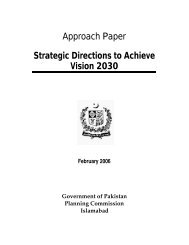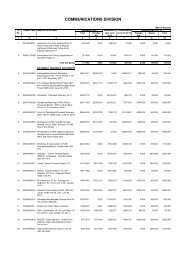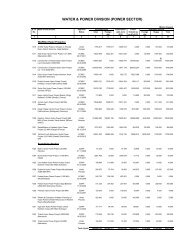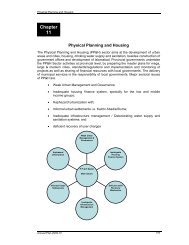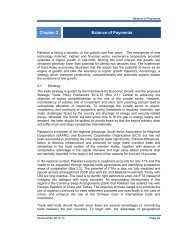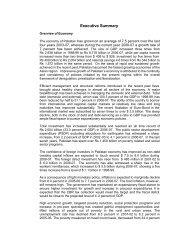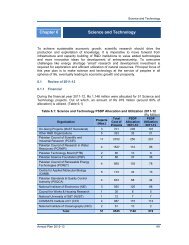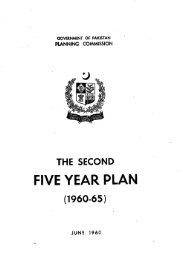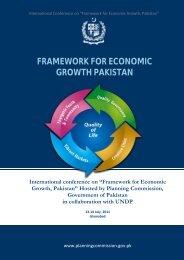Manual for Development Projects - Planning Commission
Manual for Development Projects - Planning Commission
Manual for Development Projects - Planning Commission
You also want an ePaper? Increase the reach of your titles
YUMPU automatically turns print PDFs into web optimized ePapers that Google loves.
Chapter 5<br />
Technical Analysis<br />
The analysis <strong>for</strong> determining the technical viability of the development project is based on the technical<br />
data and in<strong>for</strong>mation given in the PC-I <strong>for</strong>m as well as the earlier experience of carrying out similar<br />
projects. The technical tests and yard-sticks to be used to determine the technical viability differ from<br />
project to project and from sector to sector. In cases where high level technology is involved and the<br />
country has little or no experience, <strong>for</strong>eign consultants are also employed to prepare the feasibility<br />
studies. The technical analysis concerns the project's input (supplies) and output (production) of real<br />
goods and services. For example, in an agricultural project, technical analysis will determine the<br />
potential yields in the project area, the co-efficients of production, potential cropping patterns, and the<br />
possibilities <strong>for</strong> multiple cropping. The technical analysis will also examine the marketing and storage<br />
facilities required <strong>for</strong> the successful operation of the project. The aspects like soil/ground water or<br />
collection of hydrological data may also be examined. Knowledge about farmers in the project area,<br />
their current farming practices, and their social values to ensure realistic choices about technology is<br />
also examined.<br />
Institutional/Organizational/Managerial Analysis<br />
A whole range of issues in project preparation revolves around the overlapping institutional,<br />
organizational and managerial aspects of the project, which clearly have an important effect on project<br />
implementation. The proposal should be examined to see that the project is manageable and a<br />
relationship has been developed amongst the project, region and the country. The proposal may contain<br />
the replies of the probable questions: (a) are the authority and responsibility properly linked? (b) does<br />
the organizational set-up encourage delegation of authority? (c) does the proposed organization take<br />
proper account of the customs and organizational procedures common in the country or, alternatively,<br />
does it introduce enough change in organizational structure to break the traditional organization <strong>for</strong>ms?<br />
(d) What about training arrangements? etc.<br />
Social Analysis<br />
Social analysis is undertaken to examine the aspects like employment opportunities and income<br />
distribution. The project analyst would also examine the effects of a project on particular<br />
groups/regions.<br />
Commercial Analysis<br />
Page 3 of 24<br />
The commercial aspects of a project include the arrangements <strong>for</strong> marketing the output produced by the<br />
project and the arrangement <strong>for</strong> the supply of inputs needed to build and operate the project. On the<br />
output side, careful analysis of the proposed market <strong>for</strong> the project's production is essential to ensure<br />
that there will be an effective demand at a remunerative price. It needs to be ensured that adequate input<br />
supplies are available <strong>for</strong> the efficient operation of the project.<br />
http://hd2/pc/popup/ch5_p.html<br />
9/23/2010



